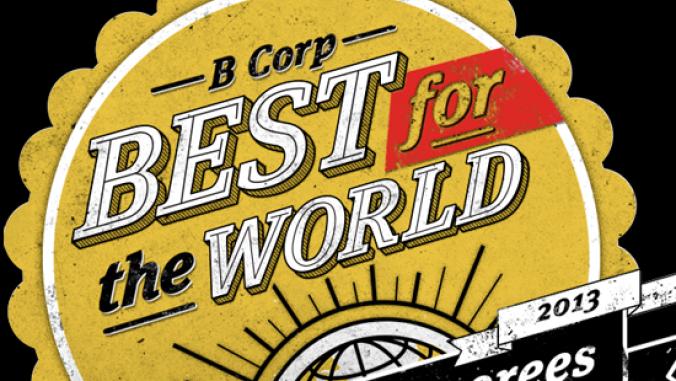E-Waste Remains the Biggest Risk to Green IT Efforts
<p>Although awareness of and action on responsible electronics recycling are quickly accelerating, there's still no serious solution in sight for dealing with mountains of toxic trash.</p>

Every so often -- a couple of times a year, maybe slightly more -- the issue of electronic waste seems to pop up on the radar of the IT industry, and there follows a confluence of news, reports, exposés, etc. etc. And then it usually fades into the background for a while.
The last such appearance was just over a year ago, but it sure looks like we're in the midst of another one right now.
There are a number of items pushing the latest round of e-waste discussions forward, but among the most interesting -- and widely discussed, as near as I can tell -- is research from the Computer Sciences Corporation that calls e-waste the biggest challenge facing the IT industry.
David Moschella, one of the researchers at CSC, writes:
The IT industry is already energy-neutral in terms of its consumption and savings, but there is still no credible scenario for safely managing the global production and disposal of literally billions of personal computers, mobile phones and other electronic devices. Yet even today, improving the energy efficiency of IT equipment is still the overwhelming focus of the Green IT community.
While energy efficiency is recommended business hygiene, the total energy consumption of IT hardware is not a serious societal problem. Most estimates suggest that all of the world's data centers, PCs and networks consume between 1.5% and 3% of the world's energy... However, the flip side of the amazing technological progress that has made the iPhone possible is rapid product obsolescence and ever-rising piles of electronic waste (e-waste), much of it disposed of in either illegal or unethical ways, usually in the developing world.
That's the first time I've heard that IT is "energy-neutral" -- it takes to the next level the idea that the ICT industry's 2 percent of global carbon emissions are more than offset by the efficiencies that IT brings to the rest of the world.
But more to the point, there are a number of drivers for increased efficiency -- whether it's bottom-line savings, demands from green-minded companies and individuals, or both -- and at this point nothing is likely to stop that push, hence the call for a shift to focus on e-waste.
I spoke with Mark Vander Kooy, the VP of business development at e-waste management company CloudBlue, about trends in e-waste he's hearing from the business world, and he said the drivers for responsible e-waste management are nowhere near as loud or as compelling as those for energy efficiency.
"To sum it up in one word: risk," Vander Kooy said. "It's the environmental and data risk you're talking about. It's the lifeblood of the company, the brand and the environmental reputation of the company."
If your company is caught shipping e-waste overseas, where it is dismantled in hazardous and toxic ways, that can put a serious dent in your green cred -- even if it's not illegal to do so.
Along those lines, Time Magazine yesterday looks at the staggering amount of e-waste that's sent to India each year:
On a typical day, visitors here are greeted by piles of the city's used goods, like the 50-ton mountain of old telephones that Mohammad Arif, a scrap trader, bought for $2500 at an auction one winter morning. By evening, the mound will be dismantled and the parts sold off. A 2008 government survey by the nation's Central Pollution Control Board said India generated 146,800 tons of e-waste in 2005. According to the environment ministry, that figure is likely to reach 800,000 tons next year.... [But] an additional 50,000 tons of e-waste is imported to India from developed countries every year, despite the nation's ban on the dumping and disposal of foreign waste in addition to a separate ban on the import of old computers and their accessories from other countries.
Even as the amount of e-waste we generate, and export overseas, is climbing ever higher, there are more and more companies that are taking responsible e-waste recycling seriously.
The E-Stewards certification, launched last spring with major corporate and NGO support, and has only grown in the last year. Less than six months after its launch, E-Stewards expanded to the European Union, and Vander Kooy said that interest in that certification is one of the elements that made 2010 a "tipping point" year for responsible recycling.
Because e-Stewards forbids exports of hazardous e-waste, as well as the burning or landfilling of e-waste and the use of prison labor to dismantle electronics, companies using e-Stewards certified recyclers are lowering their risk.
The tipping point came, Vander Kooy said, when executives in the C-Suite started to take asset management seriously as a risk and environmental initiative. In 2010, the number of requests for proposal (RFPs) CloudBlue received that required e-Steward certification for asset management grew by 300 percent over 2009, and he said there's no sign that that rate of growth is slowing.
As executives get more closely involved with e-waste, expect to see more companies talking about their successes, especially in sustainability reports -- which, given that we're in the midst of CSR season, has been front-and-center on my plate lately.
As of now, the only CSR reports that you see any kind of discussion or data on e-waste are those from IT leaders, like HP or IBM. But taking e-waste seriously creates a kind of feedback loop: Companies that are proud of their responsible recycling initiatives will put it in their annual report, which will then lead to goals for improvement, and spur other companies to do the same.
While this is all promising, the fact remains that the scale of the problem is growing faster than attempts to address it. The rise of the iPad may be a boon for e-waste recyclers because it renders other gadgets and computers obsolete, but it's continuing the rapid growth of just how much e-waste we have to deal with. (See our latest State of Green Business Report to read the not-so-great news about how we're doing on e-waste collections.)
Unfortunately, there has been little to no progress on passing federal e-waste legislation, even though two U.S. Representatives introduced a bill last fall, and will likely do so again this year. Without legislation on e-waste exports, individuals and less green-minded businesses are likely to continue with business as usual.
"The challenges are still the same," Vander Kooy said. "How are things being recycled, and how are things being collected? We're doing a much better job as a nation on collection events, but you can collect all the stuff you want, but if you're not handling it correctly it's not recycling."
As Bart Porter wrote on Earth Day 2011 about e-waste collection events tied to Earth Day: "[I]n reality, much of what is collected on Earth Day and throughout the year does not truly benefit the environment."





